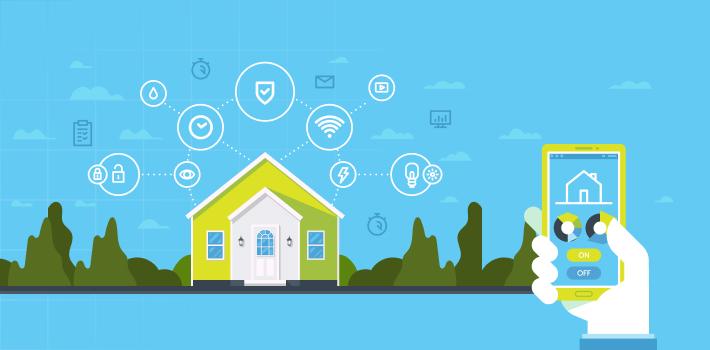Smart Water Management: A Simple Guide to Saving Water

Water is one of our most valuable resources, but it’s also one we often take for granted. From households to industries, water is essential. However, with rising demands and climate changes, managing our water resources wisely has never been more critical. That’s where smart water management comes in. This innovative approach uses technology to monitor, control, and conserve water efficiently. Let's dive into what smart water management is, how it works, and why it’s so important.
What is Smart Water Management?
Smart water management combines technology with water conservation practices. It uses sensors, data analytics, and automated systems to understand how much water is used, where it goes, and how it can be saved. With real-time data and insights, smart water management systems help people and organizations make better decisions about water use.
Key Components of Smart Water Management
-
Sensors and Meters
Sensors and smart water meters collect data on water flow, pressure, and quality. These devices can be installed in homes, factories, and farms to monitor usage and detect leaks or wastage. -
Data Analytics
Data collected from sensors is analyzed to track water usage patterns. This data helps identify areas where water can be saved or where issues, like leaks, need to be addressed immediately. -
Automated Control Systems
With automated control systems, adjustments can be made in real time. For instance, in agriculture, smart irrigation systems provide water only when needed, reducing waste. -
Cloud-Based Monitoring
Data is stored in cloud-based platforms, making it accessible to users anytime, anywhere. This allows for remote monitoring and quick decision-making.
How Does Smart Water Management Benefit Us?
1. Saves Water
One of the most significant advantages of smart water management is that it reduces wastage. Sensors detect leaks early, and automated systems ensure only the necessary amount of water is used. By minimizing wastage, smart water management helps save water for future use.
2. Saves Money
Reducing water wastage also leads to cost savings. For households, fixing leaks and monitoring usage lowers bills. Industries and agriculture can save thousands by cutting down on unnecessary water use.
3. Improves Water Quality
Some smart water management systems can test water quality, ensuring it's safe for drinking or agricultural use. In places with limited clean water access, this feature is incredibly valuable.
4. Supports Sustainable Development
Smart water management supports sustainable practices by conserving water and protecting natural resources. It helps balance human needs with environmental health.
Applications of Smart Water Management
Smart water management is versatile and can be used across various sectors:
- Homes: Smart water meters help homeowners monitor usage and detect leaks, saving money and reducing waste.
- Agriculture: Smart irrigation systems control water usage based on soil moisture levels and weather forecasts, ensuring crops get just the right amount of water.
- Industries: Factories use smart water management to optimize water use and reduce costs, making their operations more eco-friendly.
- Cities: Municipal water systems benefit from smart water management by reducing leakages and maintaining water quality in distribution networks.
Challenges in Implementing Smart Water Management
While smart water management offers many benefits, it also has some challenges:
-
High Initial Cost
The technology required for smart water management can be costly, especially for large-scale systems. However, the long-term savings often outweigh the initial investment. -
Data Privacy and Security
Since smart water management relies on data, ensuring data security and user privacy is crucial. -
Need for Skilled Personnel
Installing, managing, and maintaining smart water systems require skilled professionals. Training people for these roles can be time-consuming and costly. -
Limited Awareness
Many people are still unfamiliar with smart water management. Increasing awareness about its benefits is essential for wider adoption.
The Future of Smart Water Management
As water scarcity becomes a growing concern, smart water management will play a crucial role in conserving our resources. With technology advancing rapidly, we can expect even more efficient systems in the future. Artificial intelligence (AI) and machine learning (ML) will further improve the accuracy of water management systems, making water conservation more effective and easier for everyone.
In the years ahead, governments, organizations, and households will likely adopt smart water management practices to ensure a sustainable water supply. From reducing waste in cities to optimizing crop irrigation in farms, the potential is limitless.
Conclusion
Smart water management is a powerful way to save water, reduce costs, and promote sustainability. By using advanced technology, it offers real-time insights and automated solutions for water conservation. Although it may have some challenges, the benefits far outweigh them. Embracing smart water management today means creating a more sustainable world for tomorrow.
In a world where every drop counts, smart water management provides a smarter way to handle our most precious resource.
- Questions and Answers
- Opinion
- Story/Motivational/Inspiring
- Technology
- Art
- Causes
- Crafts
- Dance
- Drinks
- Film/Movie
- Fitness
- Food
- الألعاب
- Gardening
- Health
- الرئيسية
- Literature
- Music
- Networking
- أخرى
- Party
- Religion
- Shopping
- Sports
- Theater
- Wellness
- News
- Culture
- War machines and policy

